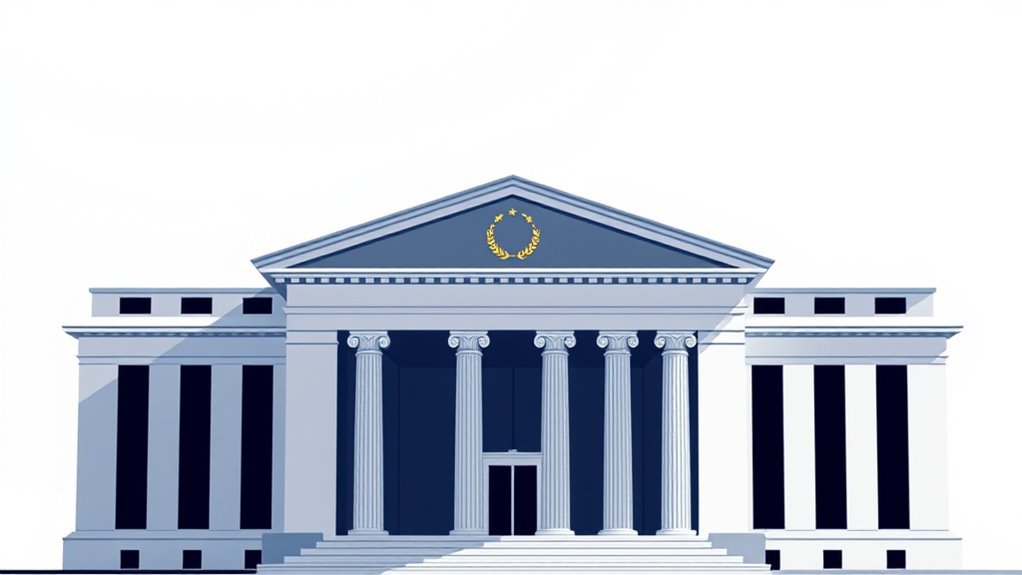The Democratic Republic of Congo offers diverse opportunities for profit. Mining, especially cobalt, copper, and diamonds, drives returns. Agriculture, focusing on coffee, cocoa, and rubber, shows export potential. Infrastructure and energy projects are needed. Investors must understand the investment and mining codes. Due diligence and risk mitigation are essential. Diversifying income streams and securing assets are important. Further exploration will reveal pathways to success in this dynamic market.
Main Points
- Invest in the mining sector (cobalt, copper, diamonds, gold) for potentially high returns, understanding the mining code and regulations.
- Explore agriculture opportunities in coffee, cocoa, and rubber, focusing on modern farming and infrastructure improvements for increased yields.
- Address infrastructure needs in energy, roads, and telecommunications to support industrial growth and tap into a growing consumer market.
- Navigate the legal and regulatory framework by understanding the investment code, labor laws, and land ownership regulations.
- Mitigate risks through due diligence, income diversification, robust security, contingency planning, and strong stakeholder relationships.
Key Industries and Investment Opportunities
The Democratic Republic of Congo possesses vast natural resources, making key industries such as mining, agriculture, and energy ripe with investment opportunities.
The mining sector, abundant in cobalt, copper, diamonds, and gold, holds immense potential for investors seeking substantial returns.
Agriculture, particularly in coffee, cocoa, and rubber production, provides avenues for development and profit. Investing in modern farming techniques and infrastructure improvements can boost yields and export capabilities.
The energy sector, specifically hydroelectric power, presents opportunities to address the country’s electricity deficit and support industrial growth. These sectors offer considerable prospects for those willing to navigate the Congolese market.
Legal and Regulatory Framework

Navigating the legal and regulatory landscape is crucial for investors in the Democratic Republic of Congo. Understanding the investment code, mining code, and labor laws is essential for compliance. Regulations regarding land ownership, taxation, and repatriation of profits should be carefully examined.
Businesses must register with the relevant authorities and obtain necessary permits and licenses.
Ensuring adherence to environmental regulations is critical for sustainable operations. The legal system can be complex, so seeking local legal counsel is highly advised. Familiarity with contract law and dispute resolution mechanisms is also recommended for successful ventures.
Risk Mitigation Strategies
Given the multifaceted challenges, risk mitigation is paramount for businesses operating in the Democratic Republic of Congo. Thorough due diligence is essential before any investment, encompassing legal, environmental, and social considerations.
Diversification of income streams can buffer against market volatility.
Implementing robust security measures, including personnel training and technology, protects assets.
Contingency plans are critical for navigating political instability and potential disruptions.
Building strong relationships with local communities and stakeholders fosters goodwill and minimizes operational risks. Insurance coverage tailored to specific risks in the DRC provides a financial safety net. Proactive communication and transparency are crucial for managing reputational risks.
Lucrative Investment Niches
Several lucrative investment niches exist within the Democratic Republic of Congo, each presenting unique opportunities and challenges.
The mining sector, particularly cobalt, copper, and diamonds, remains a primary driver of economic activity and investment. Agriculture, with a focus on cash crops like coffee, cocoa, and rubber, shows promise for growth and export potential.
Infrastructure development, including roads, energy, and telecommunications, requires significant investment to support economic expansion. The burgeoning consumer market creates opportunities in retail, hospitality, and financial services. Finally, renewable energy, especially solar and hydropower, addresses the country’s energy deficit and environmental concerns.
Common Questions
What’s the Best City to Live In?
Determining the best Congolese city depends on individual priorities. Kinshasa offers opportunity, but faces overcrowding. Lubumbashi has a lower cost of living with copper mining jobs. Goma is scenic but troubled. The “best” city hinges on economic goals and personal comfort levels.
What Are Some Cultural Business Considerations?
Cultural business considerations include understanding hierarchical structures, respecting traditional customs, and valuing relationship building. Communication styles are often indirect, requiring careful attention to nonverbal cues. Religious beliefs and local values greatly influence business practices and negotiations.
How Do I Find Reliable Local Partners?
Finding reliable local partners involves networking within Congolese business circles. Due diligence is crucial, including background checks and verifying credentials. Seeking referrals from trusted contacts and engaging with local chambers of commerce aids partner selection.
What Are Common Scams to Avoid?
Scams in any new business venture, including those in Congo, may include inflated land values, fake permits, and promises of guaranteed returns. It’s important to avoid upfront payments to unverified sources and demands of secrecy when working with partners.
What’s the Visa Process for Investors?
Investor visas in the Democratic Republic of Congo generally require application through the Congolese embassy. Documentation usually includes a detailed business plan, proof of investment capital, and registration documents. Processing times can vary, necessitating early application, and may necessitate local legal assistance.